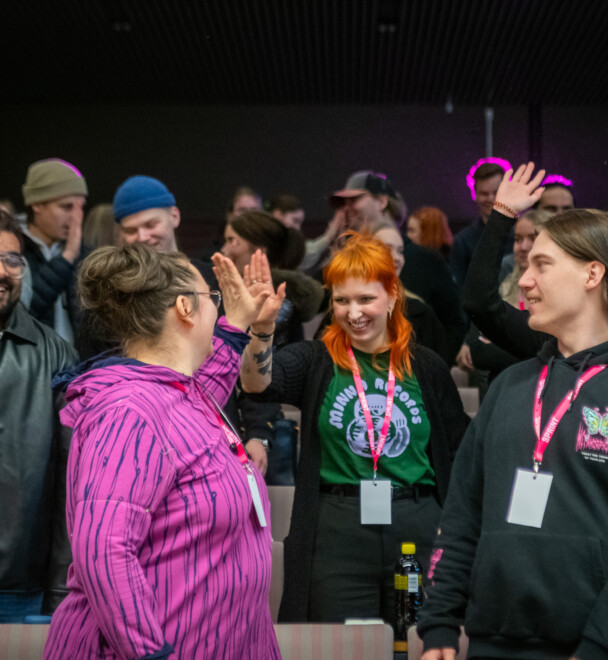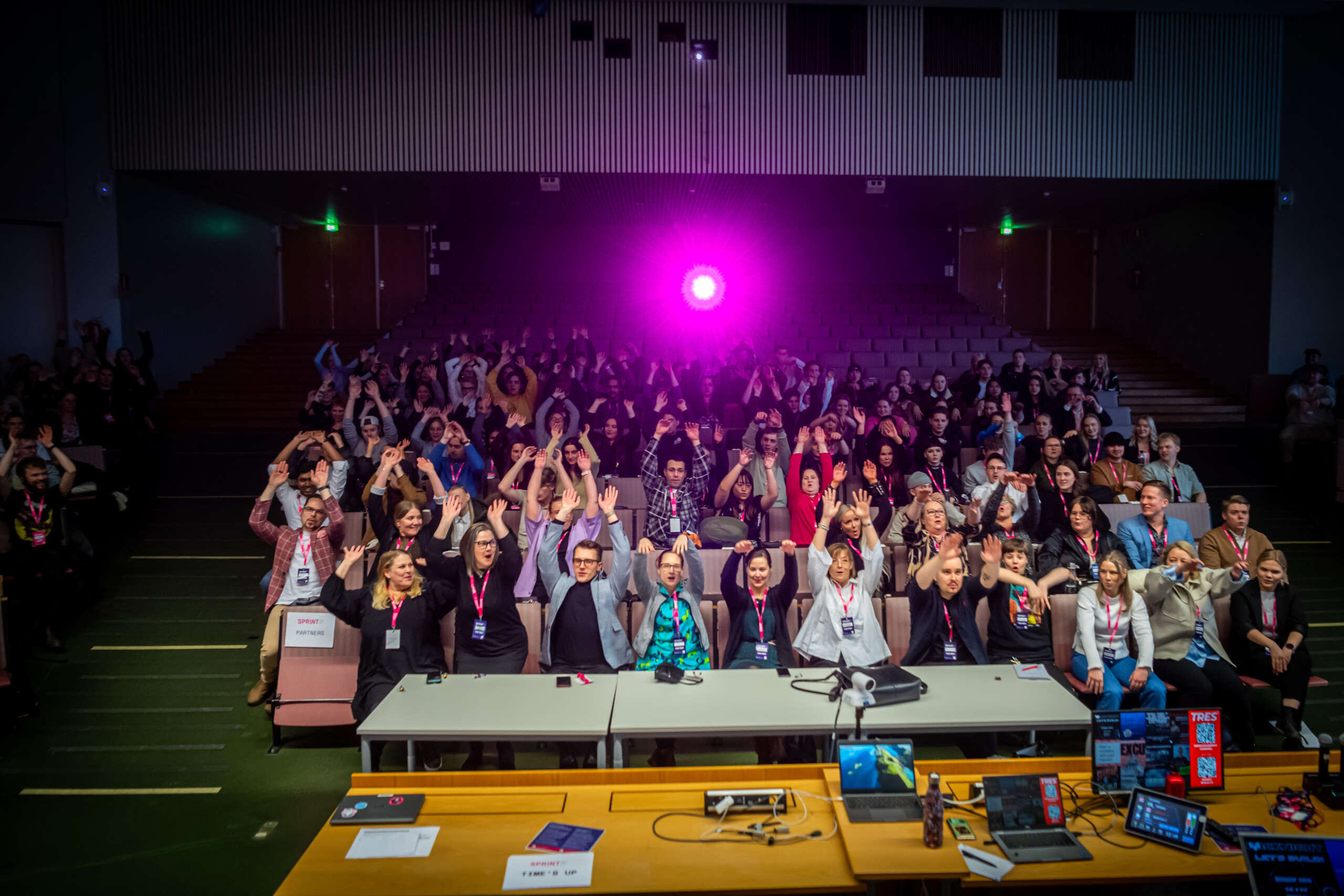
From student to knowledge worker
Jussi Laurila, who recently joined HUBS in the role of a Growth Hacker, shares the story of his transition from university student to entrepreneur. Does studying at university prepare students for the chaotic world of work?
Contact person

Jussi Laurila
Growth Hacker 2021
Writer
A broad range of academic fields of study do not prepare students for a specific career – including my own major, which was sociology – unlike, for example, medical and teaching degrees. This means students have to forge their own career paths through internships, volunteering and work experience.
Struggling to choose the right career
It is not uncommon for students with a general studies degree that is not focused on a specific profession to struggle with finding the right career path. This uncertainty, combined with the fact that the degree programmes offered by universities tend to be theoretically oriented, begs the question: Can a degree conferred by a university help students find their own career path and successfully pursue a specialist career?
Before answering this question, I will share with you some insights I gained while working on my thesis and after embarking on an entrepreneurial career.
Being a knowledge worker requires virtually superhuman skills
I wrote my master’s thesis on time management among knowledge workers. I interviewed professionals from different fields and could not help but notice that knowledge workers, like students, need to be able to work very independently. While they do work together with teams and groups and collaborate with their broad network of contacts, they are solely responsible for performing their duties and organising their own work. Specialists may be in charge of dozens of major and minor tasks. They receive emails and messages through multiple channels and are frequently interrupted during the day by beeps and buzzes and colleagues dropping by.
Simply managing everything that knowledge work entails requires almost superhuman abilities, but the performance of complex tasks also require intense concentration and time that is set aside for discussion. All this builds a complicated web made up of all the different ways that people work together and organise collaborative tasks. University graduates often become knowledge workers but does their degree prepare them for this type of career?
Does studying at university prepare students for the daily life of a knowledge worker?
Well, yes and no. I’m saying yes because of my personal journey to graduation. In my first year at university, I earned a little more than half of the annual target of 60 credits and received poor grades. I often turned up late for lectures – so often, in fact, that once someone I met at a party asked me if I was the guy who always shows up late.
Once a tardy student, now an independent knowledge worker
I was able to pick up the pace towards the end of my degree programme, and eventually completed my master’s degree within the target time despite working on a part-time basis. I was even able to improve my grades, so I graduated with a decent GPA. So besides acquiring subject knowledge at university, I learned how to be more organised and work independently, so I was able to schedule my coursework and turn in assignments on time.
Theoretical knowledge and lectures are not enough to prepare students for knowledge-intensive jobs
I also developed critical thinking skills and maybe some collaboration skills while working towards my degree. Studying at university is mostly about reading books, attending lectures and preparing written assignments, which in my opinion does not provide students with all the knowledge and skills they need to take on specialist roles.
In fact, what has best prepared me for the working world has been internships, part-time jobs and different projects. Of all the courses I completed to earn my degree, the courses offered by HUBS were by far the best in providing me with practical knowledge and the skills needed by knowledge workers because they placed a special emphasis on project-based learning and learning-by-doing instead of lectures.
Entrepreneurship courses provide students with valuable skills
The courses offered by HUBS bring students together to work as a team to complete projects and continuously reflect on their individual progress and that of their team. Although the courses are not always based on teamwork, they always take an active approach as opposed to students passively learning about a topic.
For example, one of the assignments during the course on sustainable entrepreneurship was to contact an entrepreneur to agree on an interview, then plan, carry out and record the interview, and finally edit the recording.
The end-of-course assignment was to record a video where we reflected on what we had learned, so we were able to practice editing and being on video. I would have needed editing skills in two of my previous jobs, although editing was not really part of my job description at all.
Innovation challenges provide insights and ideas
The course titled Innovation Challenges is an excellent example of project-based learning. A representative of the City of Tampere gave us an assignment to find a solution to a real-life challenge that the city and its administrators were also racing to resolve. The first step for our student team was to look into the challenge and read research papers to build an overall understanding of the topic. Then we narrowed down the problem and decided to focus on the main issue that we could address during the course.
It was an amazing learning experience, because with the help of HUBS’s coaches and the tools they made available we were able to come up with a solution to what initially seemed like an insurmountable challenge. At the end of the course, we presented our solution to the customer and a group of entrepreneurs who were invited to attend the event. They gave us plenty of feedback that enabled our team to reflect on our achievements and pinpoint development areas.
Students gain first-hand experience of specialist tasks
Based on my prior work experience, the interviews I conducted while writing my master’s thesis and the experiences of the customers I have coached, I find HUBS’s course approach to be very similar to the professional world where an individual specialist or a team is assigned to resolve a challenge. In light of this, I can only recommend students to try out the courses offered by HUBS or even choose them as a minor!
HUBS offers courses that help students develop their problem-solving skills and their ability to successfully carry out projects, thus making them even more prepared to pursue specialist careers or entrepreneurship, or otherwise address increasingly complex societal challenges.
Let’s continue this conversation in LinkedIn!
I post content relating to time management and entrepreneurship on LinkedIn on a more or less regular basis.
If you are interested in these topics, send me a connection request!
I am happy to answer any questions, talk over the phone and schedule appointments to talk about these themes, so please be in touch.
Contact person

Jussi Laurila
Growth Hacker 2021
Stories

I was surprised by everything I could achieve – Helena’s best Sprint lessons
In this blog, Helena shares practical lessons, surprises, and insights from the Sprint Innovation Festival from the perspective of a participant!

How could a humanities student benefit from entrepreneurial skills?
Discover the perspectives of our student team on entrepreneurial skills from the viewpoint of humanities and social sciences students!

Toward a more Humane Working Life Through Entrepreneurship? Sprint Partner Kasvussa Oy’s story
Why is participating in the Sprint Innovation Festival as a working life partner important for Kasvussa Oy? Founder Noora shares her thoughts!